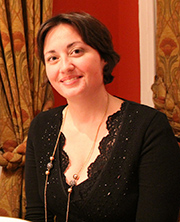402 Cohen Hall
Porphyry’s views on time and eternity are contained in the following passages:
(i) Sent. 44, p. 57, 17 – 59, 68 Lamberz;
(ii) Fr. 223, pp. 246- 247 Smith (= Cyril. Contra Iul. I 32 c-d, 552 B1-C8), a verbatim quotation drawn from Book IV of Porphyry’s fragmentary History of Philosophy (Φιλόσοφος Ἱστορία);
(iii) Fr. 232, p. 253 Smith, a testimony deriving from Proclus’ Platonic Theology (I 11, p. 51, 4-11) and which, as I argue, does justice to Porphyry’s views.
In this talk, I will first propose a new reading of Fr. 223-232 Smith. I will subsequently use my reading to shed new light on Sent. 44. On this basis, I will endeavour to show that Porphyry posits three triads (or, rather, three enneadic sets of triads), which pertain successively to eternity (αἰών), time (χρόνος), and the (Great) year (ἐνιαυτός), and which are interlaced with the hierarchy of One, Intellect, Soul, and the sensible realm. The full development of these triads provides the structure that governs the transition from the realm beyond eternity to the lowest level of time within the sensible world. This stucture is not clearly described in the surviving fragments, but I submit that it can safely be inferred from them and that it sheds light on various problems related to Porphyry’s account on time and eternity and to his metaphysics more generally. Taking a step further, I propose that Porphyry may have used set of triads in his reconstruction of Plato’s views on time and eternity in the Timaeus, although, unfortunately, the extant fragments and testimonies of his Commentary on the Timaeus (ed. Sodano 1964) do not deal with the topic [with the exception of the very concise reference in Comm. Ti. Fr. 78, p. 66, 7-67, 2 Sodano = Procl. in Ti. 248 E p. 32, 32-33 III Di. and 249 A, p. 33, 31-333 III Di.]. If this hypothesis is correct, then it is very likely that Porphyry is an unacknowledged (and perhaps indirect) authority behind Proclus’s elaborate speculations on time and eternity in his Commentary on the Timaeus and Platonic Theology.


 Department of Classical Studies
Department of Classical Studies